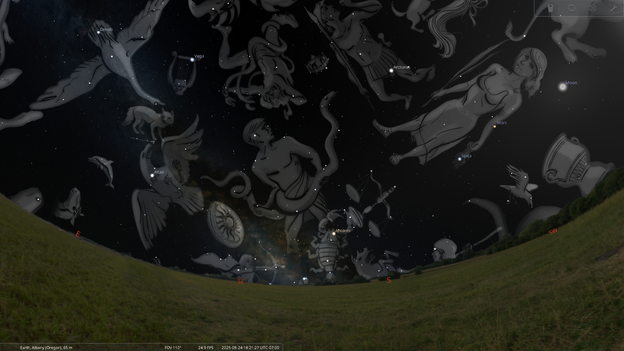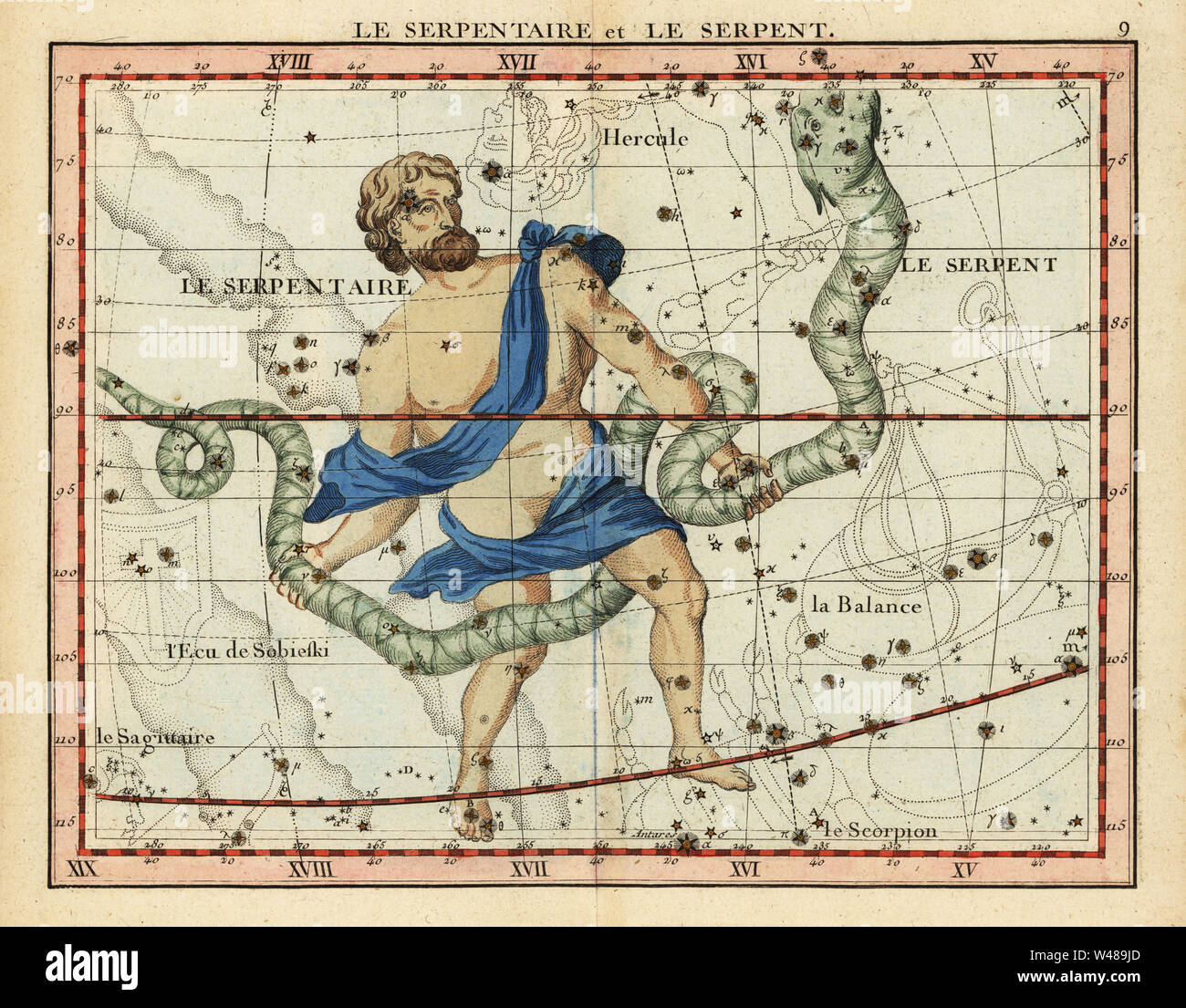I had recently been thinking about our varied beliefs about the afterlife and decided to finally read a book that had been given to me as a birthday gift a couple of years ago. The book was Bart Ehrman's Heaven and Hell: A History of the Afterlife. Now, being familiar with some of Bart's other works, I knew that the book would be interesting and well-researched, and I wasn't disappointed. I found much to agree with in the book and a few things to challenge. Some will call this a book review, but I prefer to think of it as an exploration of the parameters and evolution of Judeo-Christian thought regarding the afterlife.
First, I think that it is important to acknowledge that most humans (including those who are not Christian) believe in some kind of continued existence when this life is over. In terms of Western Culture, whether we're talking about Egyptians, Babylonians, Greeks, Romans, Jews or Muslims, we find some notion of an afterlife among them all. Hence, it is not at all surprising that we find Christians have similar beliefs about what happens when our present life ends.
Second, as Ehrman points out, it is even more important that we acknowledge the fear which has motivated a great deal of our thinking on this subject. Frankly, it is very unsettling to contemplate the end of our existence - a time when we no longer exist in this world. Moreover, for most of us, it is downright terrifying to contemplate the prospect of being punished for our sins after this life is over. Conversely, even the prospect of being rewarded for our behavior in this life when it is over, can be the source of some anxiety and uncertainty. Will we be reunited with our loved ones? What will we be doing for eternity and will we enjoy it?
Indeed, for Christians, the certainty of death and our fear of it are what motivated Jesus of Nazareth to do what he did for us. In the anonymously written epistle to the Hebrews, we read: "Because God’s children are human beings—made of flesh and blood—the Son also became flesh and blood. For only as a human being could he die, and only by dying could he break the power of the devil, who had the power of death. Only in this way could he set free all who have lived their lives as slaves to the fear of dying." (Hebrews 2:14-15, NLT) In other words, Christ's sacrifice was meant to address this near universal human fear of our own mortality.
Nevertheless, before we get into what the Judeo-Christian canon of Scripture has to say on the subject, it is essential that we trace the development of Gentile/pagan thought on the subject. Why? Because many of our "Christian" beliefs about the afterlife are rooted in that thinking, NOT in the Bible! Indeed, we will shortly demonstrate that our modern beliefs about the afterlife are more closely aligned with what folks like Plato and Virgil contemplated about them than they are with what Jesus and Paul believed and taught on the subject!
As he skillfully traced the evolution of human thinking on the afterlife, Ehrman wrote: "There were obvious problems with the concept of Hades imagined in the writings of Homer. If everyone has the same fate after death - whether noble or lowly, righteous or wicked, valiant or cowardly - then where is justice? Doesn't this life, in the end, make any sense? Isn't good behavior to be rewarded and evil punished? Won't I get a better hereafter than the brutal tyrant who torture and kills for his own sadistic pleasure, or even that obnoxious fellow who lives across the street?" In other words, these ancient philosophers were grappling with the same kinds of questions which haunt us.
Ehrman continued: "We have seen some hints of what we might call 'differentiated' afterlives even in Homer. Three particularly wicked sinners are punished forever, and a very few individual humans, or semi-humans, related to the gods are rewarded. This differentiation is far more pronounced in Virgil's Aeneid, which portrays fantastic rewards for the upright and horrible punishments for sinners. In the centuries between Homer and Virgil, more than any other thinker and writer, it was Plato who developed the notion of postmortem justice for both the virtuous and the wicked." It is in this very human reasoning that we find the embryo of our own modern notions about heaven and hell!
Like most Christians today, Plato believed that we humans have an immortal soul which departs from our physical bodies at death. For many of us, this "soul" represents our true self. This physical body is merely a temporary abode for the part of us that really makes us a sentient god-like being. Isn't that much at least Scriptural? Yes and no!
In the Old Testament, we read: "Yes, remember your Creator now while you are young, before the silver cord of life snaps and the golden bowl is broken. Don’t wait until the water jar is smashed at the spring and the pulley is broken at the well. For then the dust will return to the earth, and the spirit will return to God who gave it." (Ecclesiastes 12:6-7, NLT) In the Gospel of John, we read that Christ became human and tabernacled among us (John 1:14). Likewise, Paul wrote: "For we know that when this earthly tent we live in is taken down (that is, when we die and leave this earthly body), we will have a house in heaven, an eternal body made for us by God himself and not by human hands. We grow weary in our present bodies, and we long to put on our heavenly bodies like new clothing. For we will put on heavenly bodies; we will not be spirits without bodies. While we live in these earthly bodies, we groan and sigh, but it’s not that we want to die and get rid of these bodies that clothe us. Rather, we want to put on our new bodies so that these dying bodies will be swallowed up by life. God himself has prepared us for this, and as a guarantee he has given us his Holy Spirit." (II Corinthians 5:1-5, NLT) Also, in the second epistle of Peter, we read: "Yes, I think it is right, as long as I am in this tent, to stir you up by reminding you, knowing that shortly I must put off my tent, just as our Lord Jesus Christ showed me. Moreover, I will be careful to ensure that you always have a reminder of these things after my decease." (1:13-15, NKJV)
Thus, in the light of the above passages of Scripture, it is reasonable to conclude that the Bible teaches that humans have a physical body and a spiritual soul. Nevertheless, we still have to answer the question as to whether this spirit component/soul is inherently immortal. What does Scripture reveal about that?
First, we should note that ONLY God has true immortality (I Timothy 1:17, 6:16). The Holy Spirit and Jesus Christ are also God (Genesis 1:1-2, Job 33:4, Psalm 90:2, 104:30, 139:7, Matthew 28:19, John 1:1-3, 10:30, Hebrews 1:1-13, Revelation 1:8). Like the Father, they are NOT created entities. They have always existed and will always exist. In this respect, they are UNIQUE! EVERYTHING ELSE was/is created - both physical and spiritual! (Genesis 1:1, Isaiah 40:26, Ezekiel 28:13, 15, Ephesians 3:9, Colossians 1:16, and Revelation 4:11) Moreover, as Creator and the Omnipotent One, God is able to destroy or annihilate ANYTHING He has created!
"What about angels and the resurrected saints?" some will demand. Angels apparently have the ability to exist indefinitely. They are, after all, composed of spirit. However, as we have already demonstrated on this blog in previous posts, God has the ability to annihilate angels (including the former covering Cherub now known as Satan the Devil). Indeed, Scripture reveals that that is exactly what God has planned for him and his demons!
Remember, in the book of Isaiah, we read: "How you are fallen from heaven, O shining star, son of the morning! You have been thrown down to the earth, you who destroyed the nations of the world. For you said to yourself, ‘I will ascend to heaven and set my throne above God’s stars. I will preside on the mountain of the gods far away in the north. I will climb to the highest heavens and be like the Most High.’ Instead, you will be brought down to the place of the dead, down to its lowest depths." (Isaiah 14:12-15, NLT) Likewise, in Ezekiel, we read: "You were the model of perfection, full of wisdom and exquisite in beauty. You were in Eden, the garden of God. Your clothing was adorned with every precious stone— red carnelian, pale-green peridot, white moonstone, blue-green beryl, onyx, green jasper, blue lapis lazuli, turquoise, and emerald—all beautifully crafted for you and set in the finest gold. They were given to you on the day you were created. I ordained and anointed you as the mighty angelic guardian. You had access to the holy mountain of God and walked among the stones of fire...You defiled your sanctuaries with your many sins and your dishonest trade. So, I brought fire out from within you, and it consumed you. I reduced you to ashes on the ground in the sight of all who were watching. All who knew you are appalled at your fate. You have come to a terrible end, and you will exist no more.” (Ezekiel 28:12-19, NLT) Finally, in the book of Revelation, we read: "Then the devil, who had deceived them, was thrown into the fiery lake of burning sulfur, joining the beast and the false prophet...Then death and the grave were thrown into the lake of fire. This lake of fire is the second death. And anyone whose name was not found recorded in the Book of Life was thrown into the lake of fire." (Revelation 20:10-14, NLT)
"But, what about the soul? Isn't that immortal?" The soul is a created thing. Hence, like the rest of creation, it is subject to annihilation by Almighty God! Still not convinced? Once upon a time, Jesus told his apostles: "Don’t be afraid of those who want to kill your body; they cannot touch your soul. Fear only God, who can destroy both soul and body in hell." (Matthew 10:28, NLT) On another occasion, Christ said that it was unwise for his followers to try to hang on to their physical lives, and he asked them: "What do you benefit if you gain the whole world but lose your own soul?" (Mark 8:36, NLT) According to your Savior, you can lose your soul! Paul wrote to the saints at Rome that "the wages of sin is death, but the free gift of God is eternal life through Christ Jesus our Lord." (Romans 6:23, NLT) Hence, the soul is NOT immortal.
"How then do Christ's followers become immortal?" Paul explained it to the saints at Rome this way: "Christ lives within you, so even though your body will die because of sin, the Spirit gives you life because you have been made right with God. The Spirit of God, who raised Jesus from the dead, lives in you. And just as God raised Christ Jesus from the dead, he will give life to your mortal bodies by this same Spirit living within you." (Romans 8:10-11, NLT) This is completely consistent with what Christ told Nicodemus about being born again. He said: "I assure you, no one can enter the Kingdom of God without being born of water and the Spirit. Humans can reproduce only human life, but the Holy Spirit gives birth to spiritual life." (John 3:5-6, NLT) In other words, the Holy Spirit (God) makes our soul immortal, and that Divine spark is there the instant that we receive God's Spirit! Christ said: "I tell you the truth, those who listen to my message and believe in God who sent me have eternal life. They will never be condemned for their sins, but they have already passed from death into life." (John 5:24, NLT)
Getting back to Ehrman, what is his thesis about Christ's views and teachings about the afterlife? He wrote: "Jesus did not teach that when a person died they would go to heaven or hell. He taught that the Day of Judgment was soon to come, when God would destroy all that is evil and raise the dead, to punish the wicked and reward the faithful by bringing them into his eternal, utopian kingdom." Now, that will come as a surprise to many of my more traditionally minded Christian friends; but it would probably also come as quite a shock to some of my Armstrongist friends. "Where does Lonnie stand on this issue?" I think that Ehrman is right and that most traditional Christians and Armstrongists do NOT really understand the nature of what Jesus believed and taught about the afterlife.
According to the Gospels, Jesus of Nazareth believed in and taught about the resurrection of the dead. In the Synoptic Gospels, there is a story about Christ being confronted by the Sadducees with a question about the concept of a resurrection (Matthew 22:23-30, Mark 12:18-25, Luke 20:27-36). After dealing with their challenge, all three gospel accounts inform us that Christ said something along these lines: "But now, as to whether there will be a resurrection of the dead—haven’t you ever read about this in the Scriptures? Long after Abraham, Isaac, and Jacob had died, God said, ‘I am the God of Abraham, the God of Isaac, and the God of Jacob.’ So, he is the God of the living, not the dead." (Matthew 22:31-32, Mark 12:26-27, Luke 20:37-38, NLT) Even so, there is probably no more succinct statement of Christ's beliefs about the resurrection than one found in the Gospel of John. We read there that Jesus said: "I assure you that the time is coming, indeed it’s here now, when the dead will hear my voice—the voice of the Son of God. And those who listen will live. The Father has life in himself, and he has granted that same life-giving power to his Son. And he has given him authority to judge everyone because he is the Son of Man. Don’t be so surprised! Indeed, the time is coming when all the dead in their graves will hear the voice of God’s Son, and they will rise again. Those who have done good will rise to experience eternal life, and those who have continued in evil will rise to experience judgment." (John 5:25-29, NLT)
Moreover, Paul believed and taught the very same thing! In the famous "Resurrection Chapter" of his letter to the saints at Corinth, we read: "But tell me this—since we preach that Christ rose from the dead, why are some of you saying there will be no resurrection of the dead? For if there is no resurrection of the dead, then Christ has not been raised either. And if Christ has not been raised, then all our preaching is useless, and your faith is useless." (I Corinthians 15:12-14, NLT) Paul then reassured them that their face was well-placed and began to explain exactly how the resurrection will work. He wrote: "But in fact, Christ has been raised from the dead. He is the first of a great harvest of all who have died. So you see, just as death came into the world through a man, now the resurrection from the dead has begun through another man. Just as everyone dies because we all belong to Adam, everyone who belongs to Christ will be given new life. But there is an order to this resurrection: Christ was raised as the first of the harvest; then all who belong to Christ will be raised when he comes back." (I Corinthians 15:20-23, NLT)
Absolutely NOTHING about going to heaven or hell when we die! But where did this notion originate? It is too simplistic to say that we inherited it from Plato and Virgil (although they certainly popularized these notions). No, it is more accurate to say that these notions about punishments and rewards and going to heaven or hell upon death arose from our own flawed human reasoning and sense of justice. "God wouldn't allow us to lose consciousness or have to wait for hundreds or thousands of years after our death - would he?" Continuing with this line of thinking, "God wouldn't simply annihilate sinners and grant eternal life to the righteous, would he? How is that fair and just? Don't murderers, rapists, and child molesters deserve to be tormented? Don't the righteous deserve a paradise with lots of good food, drink, and companionship waiting on the other side? In other words, isn't the Christ - Paul formula just a little bit boring and too easy?" Of course, we could throw a few questions back in the other direction as well. Is it really fair to punish someone for all of eternity for sins spread out over a brief human lifespan?
Now, having said all of that, Scripture does seem to point to some kind of interim state between death and the resurrection. In the book of Ecclesiastes, we quoted a passage which also seems appropriate here: "Yes, remember your Creator now while you are young, before the silver cord of life snaps and the golden bowl is broken. Don’t wait until the water jar is smashed at the spring and the pulley is broken at the well. For then the dust will return to the earth, and the spirit will return to God who gave it." (Ecclesiastes 12:6-7, NLT) Likewise, we know that Saul is said to have consulted the ghost of Samuel (I Samuel 28:7-25). We are also informed in the book of Revelation: "When the Lamb broke the fifth seal, I saw under the altar the souls of all who had been martyred for the word of God and for being faithful in their testimony. They shouted to the Lord and said, 'O Sovereign Lord, holy and true, how long before you judge the people who belong to this world and avenge our blood for what they have done to us?' Then a white robe was given to each of them. And they were told to rest a little longer until the full number of their brothers and sisters—their fellow servants of Jesus who were to be martyred—had joined them." (Revelation 6:9-11, NLT) What does this interim state entail? As Scripture is silent on the subject, anything I offered here would be pure speculation.
What's the point of all of this? We can believe whatever we choose to believe. We can follow Dante into hell? We can visit the Elysian Fields. Imagination is a beautiful thing! But please, let's not fool ourselves that our fantasies are supported by Scripture or reflect the teachings of Christ and his apostles! Moreover, for those who profess to follow Christ, wouldn't it make sense to embrace what he believed and taught about the afterlife? Just asking.😊
Miller Jones/Lonnie C Hendrix







